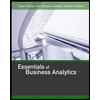
Concept explainers
Incentives, Illegal Activities, and Ethics
An article in The Wall Street Journal indicated that dressmaker Fallo Me (name changed) backdated invoices to record revenue in the quarter before sales were actually made. As long as sales remained strong, the practice went undetected. When a recession hit retailers, however, revenue sagged and it became more difficult to cover one quarter’s shortfall with anticipated revenue from the next quarter.
Fallo Me’s compensation plan included bonuses for the chief operating officer and the chief financial officer if the company’s net income reached $16 million (approximately 2 percent of sales). The company reported a net income of $23 million, and the two executives received bonuses.
The fraud occurred away from corporate headquarters (in New York) at the company’s Cleveland, Ohio, office where the company’s financial affairs are handled. Fallo Me’s chief financial officer was establishing something of an autocratic rule in Cleveland. What the growing operation lacked in organization, he evidently tried to make up through frenzied effort. Employees say they were sometimes pushed to work 16-hour days, including many weekends and holidays, and were sometimes reprimanded for arriving as little as two minutes late to work.
The chief executive officer of the company was paid $3.6 million, mostly in the form of a bonus. He stated that he was bewildered by the accounting scandal. “We just don’t know why they would do it,” he said of the mid-level employees whose scheme concealed Fallo Me’s sliding fortunes.
Required
- a. Describe how the invoice backdating could have affected reported profits. Would those profits have been overstated permanently or just for a period?
- b. What effect might the bonus plan for the chief operating officer and chief financial officer have had on the fraud, if any?
- c. How might the location of financial operations in Cleveland, instead of at corporate headquarters in New York, have made it easier for someone to commit fraud?
Want to see the full answer?
Check out a sample textbook solution
Chapter 12 Solutions
FUNDAMENTAL'S OF COST ACCOUNTING LL
- I am trying to find the accurate solution to this general accounting problem with the correct explanation.arrow_forwardI am trying to find the accurate solution to this general accounting problem with appropriate explanations.arrow_forwardHow can I solve this financial accounting problem using the appropriate financial process?arrow_forward
- Business/Professional Ethics Directors/Executives...AccountingISBN:9781337485913Author:BROOKSPublisher:Cengage
 Essentials of Business Analytics (MindTap Course ...StatisticsISBN:9781305627734Author:Jeffrey D. Camm, James J. Cochran, Michael J. Fry, Jeffrey W. Ohlmann, David R. AndersonPublisher:Cengage Learning
Essentials of Business Analytics (MindTap Course ...StatisticsISBN:9781305627734Author:Jeffrey D. Camm, James J. Cochran, Michael J. Fry, Jeffrey W. Ohlmann, David R. AndersonPublisher:Cengage Learning EBK CONTEMPORARY FINANCIAL MANAGEMENTFinanceISBN:9781337514835Author:MOYERPublisher:CENGAGE LEARNING - CONSIGNMENT
EBK CONTEMPORARY FINANCIAL MANAGEMENTFinanceISBN:9781337514835Author:MOYERPublisher:CENGAGE LEARNING - CONSIGNMENT  Auditing: A Risk Based-Approach (MindTap Course L...AccountingISBN:9781337619455Author:Karla M Johnstone, Audrey A. Gramling, Larry E. RittenbergPublisher:Cengage Learning
Auditing: A Risk Based-Approach (MindTap Course L...AccountingISBN:9781337619455Author:Karla M Johnstone, Audrey A. Gramling, Larry E. RittenbergPublisher:Cengage Learning Managerial Accounting: The Cornerstone of Busines...AccountingISBN:9781337115773Author:Maryanne M. Mowen, Don R. Hansen, Dan L. HeitgerPublisher:Cengage Learning
Managerial Accounting: The Cornerstone of Busines...AccountingISBN:9781337115773Author:Maryanne M. Mowen, Don R. Hansen, Dan L. HeitgerPublisher:Cengage Learning





